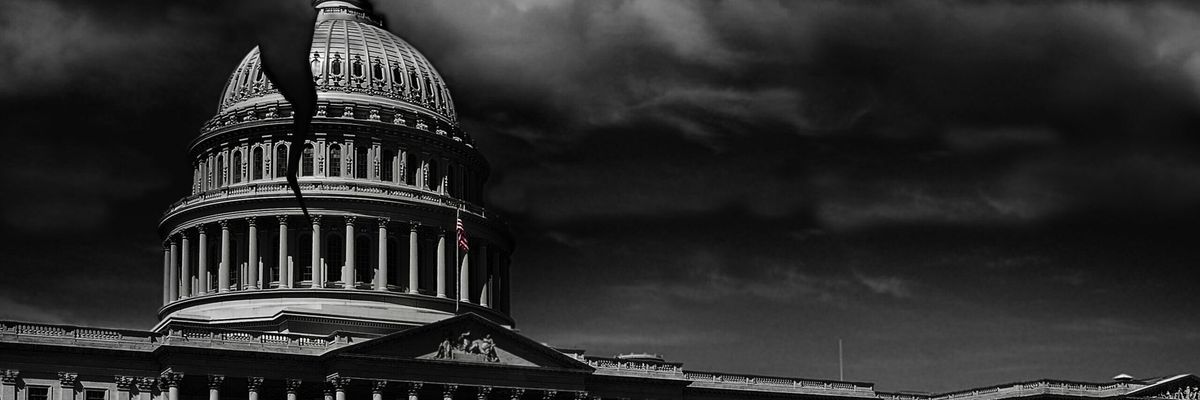While we were cursing the old year and steeling ourselves for the new, the status quo was replicating itself last week when President Biden signed a record-high $778 billion National Defense Authorization Act into law, preserving the new weapons programs of the Trump era and going well beyond even the administration’s initial request of $715 billion.
The U.S. defense industry has come to seem like part of the scenery — an unshakeable force on the global economic and political scene. A vote against the NDAA by a member of Congress, in terms of its actual prospects for effecting change in U.S. policy, remains purely symbolic. The inability of legislators to mount even a moderate challenge to the power of defense companies to determine U.S. policy should be absolutely chilling to anybody who believes that the most consequential problems of human society can be addressed by changing policy. For a body whose members receive tens of millions of dollars in contributions from the defense industry every year, there can be no deviation from this, the most well-funded bipartisan consensus.
The familiar refrain is that the defense industry is a jobs program — the only such program that consistently receives substantial federal funding, despite clear evidence that it is among the worst industries at creating jobs.
The consensus that places funding the military above any other policy priority exists independent from any assessment of actual defense needs, too. The United States has shown that it can make the most and the biggest planes and bombs, but it cannot or will not address a pandemic that — in its scope, effects, and the demands it places on U.S. healthcare facilities —resembles the possible consequences of a biological or chemical weapon.
U.S. companies rapidly produced the COVID vaccine and treatments by putting public money toward a record jump in private profits. But without making the vaccine available for manufacture elsewhere in the world by breaking the patents held by these companies, the administration doomed its own efforts to control the pandemic and showed its unwillingness, or its inability, to prioritize basic security over private profit.
That’s a profound weakness in a world where other states have proven much more effective at coordinating their COVID responses to protect their populations and serve their political interests. The status quo of maxed-out defense spending as the priority for U.S. policymakers shortchanges American workers and the U.S.’s own interests for the sake of the bottom line.
It’s not too late to change course. Legislators taking a less destructive approach to future defense budgets can choose to cancel some of the unnecessary programs funded by this year’s budget. These include the Ground-Based Strategic Deterrent, a nearly $300 billion commitment to replace all land-based nuclear missiles in the United States. Experts agree that these weapons are a profound vulnerability for the United States, increasing the risk of nuclear war without contributing to the U.S.’s ability to defend itself. That money could vaccinate the entire world against COVID — six times.
Another year defined by the suffering and uncertainty of life during a global pandemic has ended. In 2022, we can lift the curse of COVID with even moderate shifts in U.S. spending priorities. Let’s make this the last year defined by a crisis we have the tools to prevent.
















